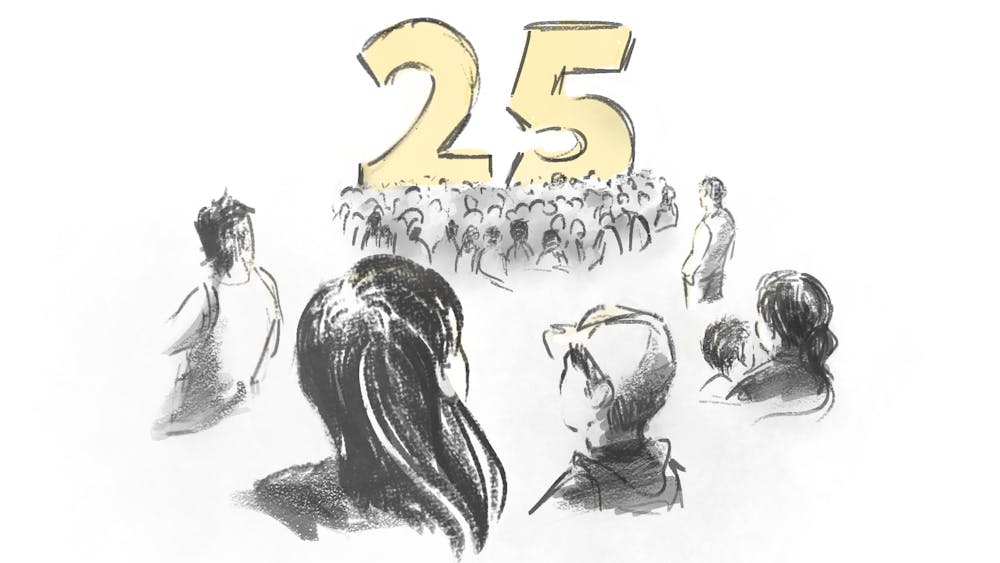2022 is a big year for the Asian American community at Penn. This year marks the Asian American Studies program’s 25th year anniversary, a milestone that will be celebrated with various programming events leading up to a special ceremony on March 19th, themed "Visualizing Asian American Futures". However, the moment is bittersweet for many students and faculty. The 25 years since the program’s founding have been defined by a long struggle—one where the program has had to fight tooth and nail just for the right to exist.
Asian American Studies is a relatively new field of study. In the mid–1990s, following global movements against colonialism, students at UC Berkeley demanded the creation of an ethnic studies–focused “Third World College” that would center the understudied histories of marginalized students. Stemming from these student-led protests, the world’s first Asian American Studies (ASAM) program was established.
The ASAM program’s inception and existence at Penn is also the result of relentless activism by students and faculty. In the mid 1990s, Kate Lam (C '92) and her peers in Students for Asian Affairs, a group predating the Asian Pacific Student Coalition (APSC), demanded a program focusing on Asian American history and identity. It took six years for their proposal to grow beyond a weekly lecture series into a formal academic program.
Since Asian American Studies is a program rather than a department, it cannot hire its own faculty. Most of ASAM’s faculty belong to other departments at Penn, and only work in ASAM part-time. In 2008, the university administration proposed severe budget cuts to the program, which was already struggling without full-time faculty. Grace Kao, ASAM’s Program director at the time, threatened to resign, precipitating student protests that successfully reversed the budget cuts. But when Kao left Penn for Yale University in 2017, only three standing faculty members remained: Josephine Park, director of ASAM, Eiichiro Azuma, and David Eng. Administrative duties were carried out by associate director Fariha Khan. After four years of calls for a replacement Program director, yielding no action by the administration, Eng announced that he was considering leaving Penn, pointing to the lack of support for the ASAM program from the Penn administration. Ultimately, despite receiving offers from other universities, Eng chose to take a sabbatical and return to Penn in Spring 2022.
In spite of ASAM’s tumultuous history at Penn, the program has reasons to be hopeful. Steven Fluharty, Dean of the School of Arts and Sciences, announced in March 2021 that the university would begin the process of filling three standing ASAM faculty positions, effectively doubling the size of the ASAM program. To oversee the expansion, ASAM Associate Director Fariha Khan was promoted to Co-Director.
ASAM Undergraduate Advisory Board (UAB) Co-Chair Claire Nguyễn (C '22) emphasizes that the timing of Penn’s announcement is not lost on the Asian American community. “Penn is choosing to bolster the ASAM program after the rise in anti-Asian violence across the country following the pandemic,” they say. Dean Fluharty’s cluster hire announcement came two weeks after the 2021 Atlanta Spa Shooting, which drew international attention to the rise in anti-Asian violence. The ASAM program expansion comes across as reactionary and performative following the shootings, Nguyễn says, ignoring the decades of student activism calling for these same changes. The ASAM program went four years without a replacement for Kao, and even more time has passed since new faculty were hired. Sadly, it took a devastating event and global media attention to compel Penn to support its Asian American students.
But the expansion of the ASAM program is a step in the right direction. Despite the administration’s refusal to acknowledge student activism, ASAM UAB Co-Chair Jennifer Kang (C '24) notes that "the increased support for the ASAM program is a culmination of efforts from the UAB from five years ago. Although it’s a victory, we want to build upon this and grow the ASAM program even further,” Kang says.
While the ASAM program has always been important for Penn’s Pan-Asian community, the recent uptick in anti-Asian sentiment has turned the ASAM program into a lifeline for many students. “When Atlanta happened, Dr. Khan checked in on everyone in the UAB. We were able to process events with our professors. They gave us the space to articulate our experiences with racism and xenophobia, especially in a society that wants to invisibilize our experience,” Nguyễn says.
For her part, Dr. Khan is using this anniversary as an opportunity to look forward. “I hope the growth of Asian American Studies is relentless over the next 25 years. This means more research opportunities, more programming, more courses, and finally growing the ASAM minor into a major,” she says. Due to the lack of faculty, there have not been sufficient courses for the ASAM program to offer a major, something that may change following the cluster hire. This will be a key step for the ASAM program to eventually develop into its own department.
Dr. Khan, ASAM faculty, and UAB representatives like Nguyễn and Kang all envision the future of ASAM to be one of growth. Over the course of 25 years, even in the face of many challenges and struggles, students have continued to imagine what a thriving Asian American Studies program could look like at Penn. They also underscore the importance of confronting long–standing issues, such as offering more classes that explore the depth of Asian American identities, including the experiences of Native Hawaiian and Pacific Islander communities or Asian American refugees. Students deserve an Asian American Studies program that can reflect the diversity of these lived realities, one that celebrates the complex, nuanced, and vibrant communities that embody what it means to be Asian American.







